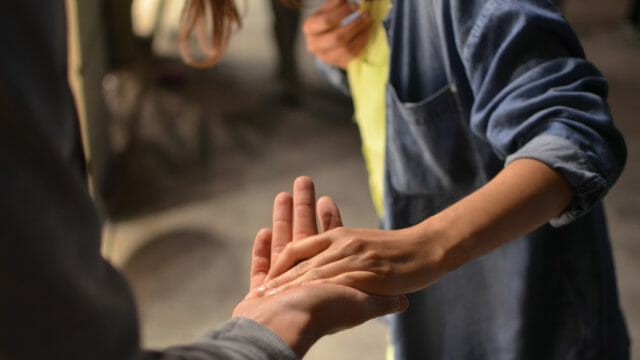Counsel from marriage and family experts

One of my good friends just lost her husband to COVID-19. He was only 49 years old. She feels lost and is angry at God for allowing this to happen. She told me the other day that she’s in deep pain and despair with a big hole in her soul that she doesn’t believe will ever be filled. I want to do something to help her feel better and come to grips with what’s happened to her, but I don’t know what to say or what to do. Please help me.
We’re very sorry for your friend’s loss, and in a manner of speaking this is also your loss. No one should have to lose a spouse at such a young age. What a tragedy! Yet, this is a reality many are experiencing during this awful pandemic that has taken over the world.
Most of us don’t know what to do or say when someone close to us has lost a loved one, especially a spouse. The truth is, when someone experiences the death of a loved one their emotions can be quite erratic. They may be very calm at times, and then suddenly cry uncontrollably as they experience deep sorrow and tremendous vulnerability. To be sure, grief comes in waves.
While the death of a loved one is excruciatingly painful—like the feelings your friend described—there’s much you can do to support her through this incredibly challenging time in her life. Consider the following list of ideas you might employ to support your friend in her time of grief:
- Be present. Reach out to your friend with a telephone call or a text message
to let her know “I’m here for you.” It’s possible your friend may not want to talk. Yet, let her know that you’re just a phone call away whenever she’s ready to talk.
- Go for a walk in the park. Being outdoors where she can get some
fresh air will calm her down, lower her stress levels, and strengthen her immunity.
- Walk down memory lane. Don’t be afraid to talk about good times you had
with your friend and her husband. Looking at old photos and reminiscing about memories you made together are healing to the grieving person.
- Bring food. Nothing says community more than sharing a meal with a friend.
When people are grieving they lose energy for life and for doing anything, including cooking and eating. Tasty, nourishing food conveys care more than you can ever imagine.
- Take care of it. If you notice the kitchen needs cleaning or the house needs
tidying up when you’re visiting, take care of it. This will convey that you really care and sincerely want to help.
- Don’t be in a hurry. Let your friend know you’ll be there for her as long as
she needs you, not by saying so but by doing so. Then be ready to be a real friend for the long haul.
- Be of spiritual support. Even people of faith often feel alienated from God or
even angry at Him when they’ve lost a loved one. Be ready to read passages from the Bible to your friend that give comfort and the assurance of God’s care. And pray for God’s peace and the promise of His presence.
These are difficult days, and more of them are still ahead. Nevertheless, stay close to Jesus for your own peace, comfort, and strength so you can be of encouragement to those you care about.
We leave you with the consolation of Psalm 46:1, which says: “God is our refuge and strength, a very present help in trouble.”* You’re in our prayers.
*Scripture quotations are from The Holy Bible, English Standard Version, copyright © 2001 by Crossway Bibles, a division of Good News Publishers. Used by permission. All rights reserved.








